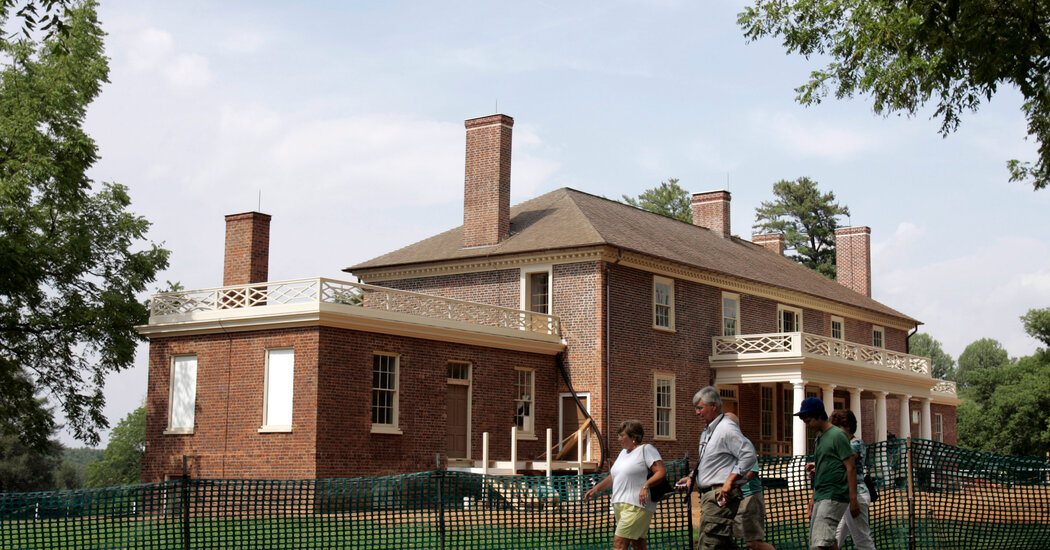

After months of conflict, the foundation that runs President James Madison’s Virginia estate agreed on Monday to accept 11 people recommended by a group of descendants of enslaved people who worked there to its governing board.
In a statement on Monday, the Montpelier Foundation, which runs the 2,650-acre estate outside Orange, Va., that belonged to the nation’s fourth president, said: “This historic and unprecedented vote by the board of directors means that the foundation has achieved its long-sought goal of parity on the Board for descendants of Montpelier’s formerly enslaved population.”
Also on Monday, Gene Hickok said that he would step down as board chairman. He said that the board had taken its time to approve candidates because it wanted to “broaden and improve the list,” but that he was ultimately “thrilled” with the new members.
The board, which makes decisions about the foundation’s leadership and finances, will now have 10 white members and 15 members who are people of color, Greg Werkheiser, a lawyer for the descendants’ group, said on Monday. Before Monday’s vote, the board had only three members who had been nominated by the group, the Montpelier Descendants Committee.
Monday’s vote capped months of boardroom drama that began last year after the board agreed to share power with the descendants’ group but was accused of withholding that power.
The conflict drew national attention last month after the board stripped the descendants’ group of its power to nominate board nominees and gave itself the exclusive right to do so.
After all the attention, including a petition calling for parity on the board that was signed by more than 11,000 people, the board voted to add 11 new members, according to the Montpelier Foundation and the descendants’ group.
“It was a hard slog,” Mr. Werkheiser said.
The new board members include the broadcast journalist Soledad O’Brien and the Rev. Cornell William Brooks, the former president and chief executive of the N.A.A.C.P.
“What Montpelier achieved today is absolutely now a model for cultural institutions around the world,” Mr. Werkheiser said.
In a statement released by the descendants’ group on Monday, Mr. Brooks said that it was important to share the stories of those enslaved at Montpelier, especially “as our nation grapples with and even grieves over the racial injustices of this day.”
The foundation has grappled for years over how to honor Madison’s legacy while accurately representing his past as a slaveholder. It has worked with descendants to put on exhibits such as “The Mere Distinction of Colour” in 2017 which showed the realities of life on the Montpelier plantation and how slavery was entrenched into the Constitution.
Michael Levenson contributed reporting.
24World Media does not take any responsibility of the information you see on this page. The content this page contains is from independent third-party content provider. If you have any concerns regarding the content, please free to write us here: contact@24worldmedia.com

Marnus Labuschagne Caught Off-Guard By ODI Captain Call After Steve Smith Snub

Everyone Is Looking Forward To It, The Standard Will Be Very High – Jacques Kallis On CSA’s SA20

Danushka Gunathilaka Granted Bail On Sexual Assault Charges

Ramiz Raja Sends Legal Notice To Kamran Akmal For Defamatory, False Claims Against The Board

Harbhajan Singh Reckons Mumbai Indians Should Release Kieron Pollard Ahead Of The IPL Auction 2023

Ian Bishop Praises Sam Curran For His Performances On Bouncy Australian Tracks

Why Choose A Career In Child Psychology?